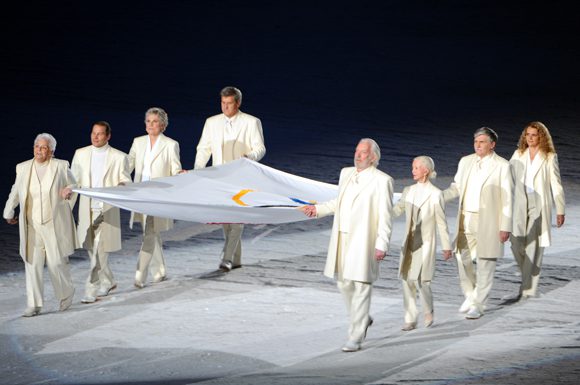Barbara Ann Scott, Canada’s only women’s individual figure skating gold medalist, passed away on Sunday at her Amelia Island, Fla., home.
She was 84.
“Barbara Ann set the standard for generations of female athletes and women skaters who came after her,” said Skate Canada president Benoit Lavoie in the written statement on Monday. “The discipline and focus that she learned early in her career were the foundation of her success, as Canadian, North American, European, World and Olympic Champion.
“And she remained so connected to the sport, and to Canada after her own career was over. Every time she attended our events, she inspired our skaters and encouraged them to pursue their dream.”
As an athlete, Scott was a prodigy. From the age of seven growing up in Ottawa during an era marked by the Great Depression, her talent was undeniable. At the age of 10, she was the youngest Canadian ever to pass the gold-medal test of the Canadian Figure Skating Association. Two years later she was the national junior championship.
Though World War II marred her teen years, the honey-blond beauty thrived on the ice. Scott was the first woman to land a double Lutz in a competition at 13. She was also the national senior champion by 15.
That year, in 1945, she was awarded her first of three Lou Marsh Trophies as Canada’s top athlete.
By the time Scott turned 18 she was already a the three-time Canadian champion and a North American champion.
It was an era of great change in Canada. The country was still recovering from the War; soldiers were returning home, shell-shocked by the horrors they witnessed abroad while women were slowly being encouraged out of the workforce.
Scott was good enough to compete at the international level. But at the time, it was expensive to travel, especially overseas.
It took the money raised by her Ottawa friends that allowed for the rising star, her coach and her mother to travel to Davos, Switzerland, and then again to Stockholm, Sweden. Because of them, she was able to compete at the European and world championships, respectfully, winning back-to-back gold medals in 1947 and 1948.
She became a star back home.
Children who were let out of school early were among the 70,000 cheering admirers that lined the street of Ottawa, watching Scott pass by on a convertible as a band serenaded the crowd to the tune of “Let Me Call You Sweetheart.”
Scott was declared “Canada’s Sweetheart”, a source of joy and admiration for all. And they awarded her the key to the city and a new yellow convertible to show their love and gratitude for her triumph.
The car had to be returned though, when then president-elect of the International Olympic Committee Avery Brundage warned Scott that the gift would cause her to lose her Olympic eligibility. And with the Olympics only a year away, the Canadian wasn’t about to jeopardize her chances.
It was Jan. 31, 1948 when Scott represented Canada in St. Moritz, Switzerland.
The venue was outdoor and the temperature that day was above freezing. The gold-medal men’s hockey game had just concluded, with the Ottawa RCAF Flyers team from Canada victorious. But as a result, the ice was a mess. Even after the rink attendants had removed the boards and resurfaced the ice, there were holes, ruts and slush everywhere.
Her coach had to walk across the sheet to identify the problem spots to her. Scott had to rework her entire four-minute program to accommodate the poor conditions, downgrading her jumps, or eliminating them altogether.
“When you have to skate outside in the elements, you tend not to worry about the small stuff,” she reportedly said at the time.
But Scott overcame the odds. In a hand-sewn cream-coloured fur dress, and her blue eyes shining, she put together a historic performance that continues to live in the hearts of her compatriots. It was a dominating free skate in trying conditions, and with seven of nine first-place votes, she captured an historic gold medal to become a Canadian icon.
Though she was credited by then Prime Minister William Lyon Mackenzie King with inspiring her fellow Canadians to endure throughout the post-war gloom of the era, Scott remained humble. For her, according to CBC’s Sports figure skating analyst PJ Kwong, she was simply serving her country, much like those that had fought in the years before.
Scott was inducted into Canada’s Sports Hall of Fame and Figure Skating Hall of Fame. She became an officer of the Order of Canada, inducted into the International Women’s Sports Hall of Fame, and was even named to Canada’s Walk of Fame.
But it is the lasting impact she had on the sport in her home nation that is her greatest contribution to this country.
“What can you say except that Barbara Ann Scott was a sports legend and a source of inspiration for so many,” said Kwong. “As gracious and charming off ice as she was fiercely competitive on the ice, she was one of a kind and will be sorely missed.”

